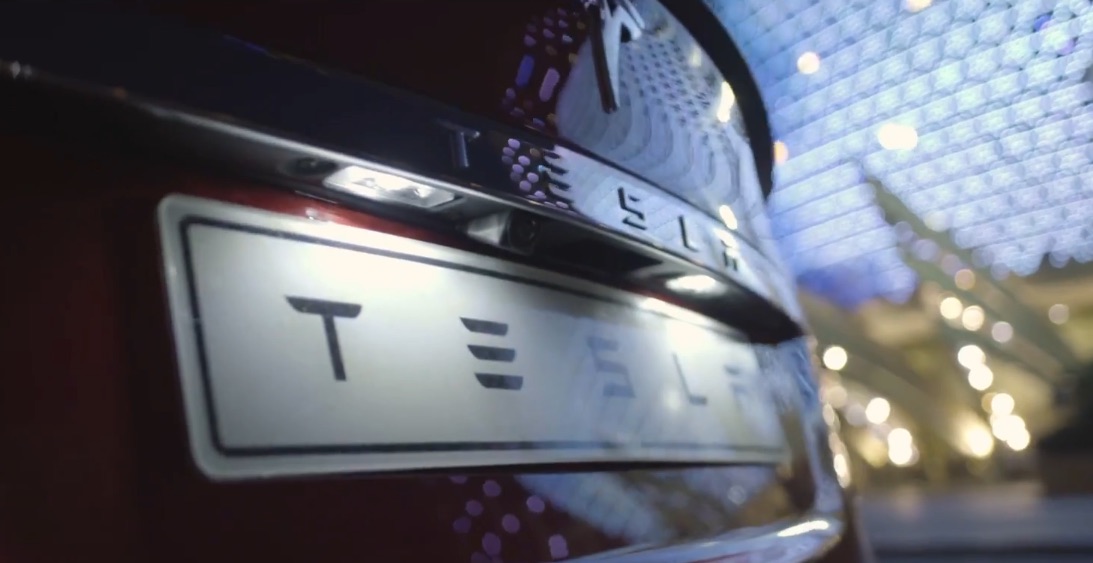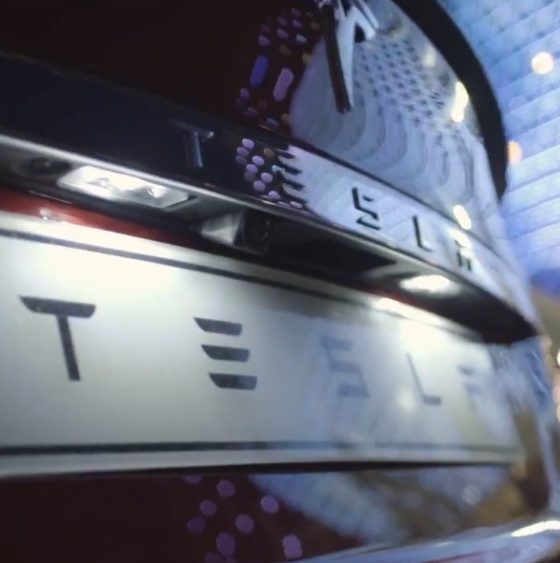

Investor's Corner
Tesla (TSLA) dips as Cowen predicts $210 price, Model 3 'demand saturation'
Tesla stock (NASDAQ:TSLA) dropped on Monday amid the release of a bearish note from Cowen, which predicted that the electric car maker’s stock price is poised to be halved, and that the Model 3 is experiencing “demand saturation.” On the heels of Cowen’s note, TSLA shares dropped by as much as 4.9%, before seemingly leveling out at around 4% as of writing.
In a note dated December 29, one day before Tesla China held an inaugural delivery for the first 15 Made-in-China Model 3 at Gigafactory 3, Cowen analyst Jeffrey Osborne stated that he expects the electric car maker to miss its 2019 delivery guidance of 360,000 to 400,000 vehicles. According to Osborne, Tesla may deliver only 356,000 cars instead. The analyst also predicted that Model 3 deliveries would be down quarter-over-quarter and year-over-year in Q4 2019, due to what he described as “demand saturation” for the vehicle.
“Excluding the Netherlands and China, we expect Model 3 deliveries to be down 9% quarter over quarter and 7% year over year in the fourth quarter, which highlights the demand saturation we are seeing across most mature markets as we shift from pent-up demand to steady flow demand,” Osborne wrote.
While the Cowen analyst adjusted his delivery estimate for Q4 2019 to 101,000 vehicles from his initial 95,000 estimate, the analyst nevertheless insisted that Tesla’s expansion into China is likely overestimated. The analyst stated that he remains skeptical about Tesla and the Model 3’s long-term demand in China, primarily since the best-selling car in the country, the BAIC EU Series, has sold less than 2,000 vehicles per week as of late. He also cited Tesla’s alleged poor build quality and service issues as headwinds that the company will face in China.
“BAIC’s EU Series has sold less than 2,000 vehicles per week and the top 5 models (all local brands) combined for less than 6,000 vehicles per week. Those models all cost about one-quarter to three-quarters less than what the China-made Model 3 is expected to cost. While Tesla has built a very dedicated fan base that has been willing to excuse poor build quality, customer service, and service infrastructure, we continue to be skeptical around broader adoption,” he noted.
Cowen has given TSLA stock an “Underperform” rating and a price target of $210 per share. That implies a 50% decrease from the stock’s recent levels.
Overall, Cowen’s points against Tesla that were related in Osborne’s recent note echoed much of the older and rather outdated bearish narratives against the electric car maker. Recent reports from China indicate that all vehicles produced in Gigafactory 3 are sold to customers, and speculations are abounding that the massive electric car facility is now producing cars at a rate beyond 1,000 per week. Tesla’s quality issues are also an issue that the company’s China team had seemingly taken as a personal challenge, emphasizing the MIC Model 3’s stellar build quality when the vehicle was initially unveiled to the media.
Thus, inasmuch as Cowen’s sentiments may be valid, there is also a good chance that Osborne’s concerns about the company, particularly with regards to Model 3 demand in China, will be proven wrong in the coming quarters. For now, 15 analysts tracked by Bloomberg rate TSLA stock with the equivalent of a “Sell,” 11 rates the company with a “Buy,” and another 10 recommend a “Hold.” The average price target for Tesla stock is currently at $297 per share.
Disclosure: I have no ownership in shares of TSLA and have no plans to initiate any positions within 72 hours.

Elon Musk
Tesla stock gets latest synopsis from Jim Cramer: ‘It’s actually a robotics company’
“Turns out it’s actually a robotics and Cybercab company, and I want to buy, buy, buy. Yes, Tesla’s the paper that turned into scissors in one session,” Cramer said.

Tesla stock (NASDAQ: TSLA) got its latest synopsis from Wall Street analyst Jim Cramer, who finally realized something that many fans of the company have known all along: it’s not a car company. Instead, it’s a robotics company.
In a recent note that was released after Tesla reported Earnings in late January, Cramer seemed to recognize that the underwhelming financials and overall performance of the automotive division were not representative of the current state of affairs.
Instead, we’re seeing a company transition itself away from its early identity, essentially evolving like a caterpillar into a butterfly.
The narrative of the Earnings Call was simple: We’re not a car company, at least not from a birds-eye view. We’re an AI and Robotics company, and we are transitioning to this quicker than most people realize.
Tesla stock gets another analysis from Jim Cramer, and investors will like it
Tesla’s Q4 Earnings Call featured plenty of analysis from CEO Elon Musk and others, and some of the more minor details of the call were even indicative of a company that is moving toward AI instead of its cars. For example, the Model S and Model X will be no more after Q2, as Musk said that they serve relatively no purpose for the future.
Instead, Tesla is shifting its focus to the vehicles catered for autonomy and its Robotaxi and self-driving efforts.
Cramer recognizes this:
“…we got results from Tesla, which actually beat numbers, but nobody cares about the numbers here, as electric vehicles are the past. And according to CEO Elon Musk, the future of this company comes down to Cybercabs and humanoid robots. Stock fell more than 3% the next day. That may be because their capital expenditures budget was higher than expected, or maybe people wanted more details from the new businesses. At this point, I think Musk acolytes might be more excited about SpaceX, which is planning to come public later this year.”
He continued, highlighting the company’s true transition away from vehicles to its Cybercab, Optimus, and AI ambitions:
“I know it’s hard to believe how quickly this market can change its attitude. Last night, I heard a disastrous car company speak. Turns out it’s actually a robotics and Cybercab company, and I want to buy, buy, buy. Yes, Tesla’s the paper that turned into scissors in one session. I didn’t like it as a car company. Boy, I love it as a Cybercab and humanoid robot juggernaut. Call me a buyer and give me five robots while I’m at it.”
Cramer’s narrative seems to fit that of the most bullish Tesla investors. Anyone who is labeled a “permabull” has been echoing a similar sentiment over the past several years: Tesla is not a car company any longer.
Instead, the true focus is on the future and the potential that AI and Robotics bring to the company. It is truly difficult to put Tesla shares in the same group as companies like Ford, General Motors, and others.
Tesla shares are down less than half a percent at the time of publishing, trading at $423.69.
Elon Musk
Tesla to a $100T market cap? Elon Musk’s response may shock you

There are a lot of Tesla bulls out there who have astronomical expectations for the company, especially as its arm of reach has gone well past automotive and energy and entered artificial intelligence and robotics.
However, some of the most bullish Tesla investors believe the company could become worth $100 trillion, and CEO Elon Musk does not believe that number is completely out of the question, even if it sounds almost ridiculous.
To put that number into perspective, the top ten most valuable companies in the world — NVIDIA, Apple, Alphabet, Microsoft, Amazon, TSMC, Meta, Saudi Aramco, Broadcom, and Tesla — are worth roughly $26 trillion.
Will Tesla join the fold? Predicting a triple merger with SpaceX and xAI
Cathie Wood of ARK Invest believes the number is reasonable considering Tesla’s long-reaching industry ambitions:
“…in the world of AI, what do you have to have to win? You have to have proprietary data, and think about all the proprietary data he has, different kinds of proprietary data. Tesla, the language of the road; Neuralink, multiomics data; nobody else has that data. X, nobody else has that data either. I could see $100 trillion. I think it’s going to happen because of convergence. I think Tesla is the leading candidate [for $100 trillion] for the reason I just said.”
Musk said late last year that all of his companies seem to be “heading toward convergence,” and it’s started to come to fruition. Tesla invested in xAI, as revealed in its Q4 Earnings Shareholder Deck, and SpaceX recently acquired xAI, marking the first step in the potential for a massive umbrella of companies under Musk’s watch.
SpaceX officially acquires xAI, merging rockets with AI expertise
Now that it is happening, it seems Musk is even more enthusiastic about a massive valuation that would swell to nearly four-times the value of the top ten most valuable companies in the world currently, as he said on X, the idea of a $100 trillion valuation is “not impossible.”
It’s not impossible
— Elon Musk (@elonmusk) February 6, 2026
Tesla is not just a car company. With its many projects, including the launch of Robotaxi, the progress of the Optimus robot, and its AI ambitions, it has the potential to continue gaining value at an accelerating rate.
Musk’s comments show his confidence in Tesla’s numerous projects, especially as some begin to mature and some head toward their initial stages.
Elon Musk
Tesla director pay lawsuit sees lawyer fees slashed by $100 million
The ruling leaves the case’s underlying settlement intact while significantly reducing what the plaintiffs’ attorneys will receive.

The Delaware Supreme Court has cut more than $100 million from a legal fee award tied to a shareholder lawsuit challenging compensation paid to Tesla directors between 2017 and 2020.
The ruling leaves the case’s underlying settlement intact while significantly reducing what the plaintiffs’ attorneys will receive.
Delaware Supreme Court trims legal fees
As noted in a Bloomberg Law report, the case targeted pay granted to Tesla directors, including CEO Elon Musk, Oracle founder Larry Ellison, Kimbal Musk, and Rupert Murdoch. The Delaware Chancery Court had awarded $176 million to the plaintiffs. Tesla’s board must also return stock options and forego years worth of pay.
As per Chief Justice Collins J. Seitz Jr. in an opinion for the Delaware Supreme Court’s full five-member panel, however, the decision of the Delaware Chancery Court to award $176 million to a pension fund’s law firm “erred by including in its financial benefit analysis the intrinsic value” of options being returned by Tesla’s board.
The justices then reduced the fee award from $176 million to $70.9 million. “As we measure it, $71 million reflects a reasonable fee for counsel’s efforts and does not result in a windfall,” Chief Justice Seitz wrote.
Other settlement terms still intact
The Supreme Court upheld the settlement itself, which requires Tesla’s board to return stock and options valued at up to $735 million and to forgo three years of additional compensation worth about $184 million.
Tesla argued during oral arguments that a fee award closer to $70 million would be appropriate. Interestingly enough, back in October, Justice Karen L. Valihura noted that the $176 award was $60 million more than the Delaware judiciary’s budget from the previous year. This was quite interesting as the case was “settled midstream.”
The lawsuit was brought by a pension fund on behalf of Tesla shareholders and focused exclusively on director pay during the 2017–2020 period. The case is separate from other high-profile compensation disputes involving Elon Musk.








